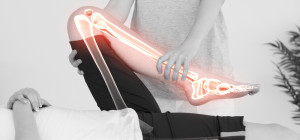 When your parents reach a point of their lives when it is no longer safe for them to live alone, you may find yourself stepping up to become their caregiver. This can be a challenging role, but it’s one being handled by an increasing number of family members. The number of unpaid adult caregivers for elderly individuals of over 50 years old surpassed 30 million in the United States. More than 80 percent of these caregivers provide care for their family members.
When your parents reach a point of their lives when it is no longer safe for them to live alone, you may find yourself stepping up to become their caregiver. This can be a challenging role, but it’s one being handled by an increasing number of family members. The number of unpaid adult caregivers for elderly individuals of over 50 years old surpassed 30 million in the United States. More than 80 percent of these caregivers provide care for their family members.
Fortunately, plenty of resources exist to help make caregiving a better experience. Caregiving responsibilities vary as they range from assisting the senior citizen to undertake his or her everyday activities, such as eating and dressing to reminding them to take their medicine. Tools can help make each of these responsibilities easier to manage.
Whether you provide live-in care for your elderly parents, or consider the complex task of elder-care arrangements for them, some of the resources discussed below will help you improve the quality of care provided for your elderly parents.
Resources for Enhancing the Caregiving Experience
Below are some of the resources that you can use to help you worry less about your engaging role as a caregiver.
1. GPS Trackers
Thanks to innovative technology, GPS tracking devices have been introduced to help caregivers track seniors. These personal tracking devices can help you bring your loved ones back to you safely if they get lost or wander off. GPS devices use cellular technology to provide the location of an individual, as well as scheduled reporting and alerts if a predetermined boundary is crossed.
An estimated six out of 10 people with dementia will wander. However, anyone with memory problems could potentially wander. A person with memory loss may not remember their name or address, making it impossible to return home on their own. It is essential in these cases to have a GPS tracker to be able to find your loved one before they get hurt or otherwise endangered by outdoor elements.
Not all GPS tracking devices are the same, so take the time to compare and make the choice that best meets your family’s needs.
2. Medical Alert System
A medical alert systemis an option for providing dependence to seniors, and peace of mind for their caregivers. These systems come with a wearable device – in the form of a wristband or pendant – that provides various options for keeping a senior safe at all times. With the touch of a button, a senior can be connected to a response center where a specialist can arrange emergency services and reach emergency contacts. Some devices even have two-way calling features to communicate with loved ones while wearing the device.
Most medical alert systems offer valuable fall detection sensors that enable your loved one to access help in the event of a fall, which can have dangerous health implications. GPS tracking is another option on these devices, allowing caregivers to find their loved one in case they wander from home. Several other options such as chemical sensors or security features may also be available, depending on the system.Medical alert reviewsites like MedicalAlertBuyersGuide.org can help you make a decision.
3. Medication Tracking Devices
Seniors may take between five and 13 prescription medications each day. This number of medications can be difficult for anyone to manage but is especially challenging for an elderly patient who experiences memory problems. Additionally, missing a dose or taking an extra dose can be especially dangerous for a senior whose health is more vulnerable to these sudden changes.
There are several unique medication tracking devices available on the market to assist in medication management. They function differently, and your choice of device may depend on your nature of work as a caregiver. For instance, some of these trackers function as wearable reminders, whereas others integrate tech elements to the conventional pillboxes.
Before selecting the right device, you may want to consider if the device fits your budget, is easy to set up and use, and if it is flexible for your circumstances. Since you are buying a device that you will rely on a lot, ensure that the medication tracker you choose meets all of your predetermined criteria.
The Way Forward
As a caregiver for a senior citizen, you may have to deal with the loss of memory of your loved one as well as other common aging symptoms such as judgment loss, inability to communicate effectively and frequently, loss of orientation, and changes in behavior. The role of a caretaker can be stressful and burdensome, but using the available resources and technologies can greatly enhance the experience. With planning and assistance, your caregiving experience can be less demanding during your parent’s time of need.







